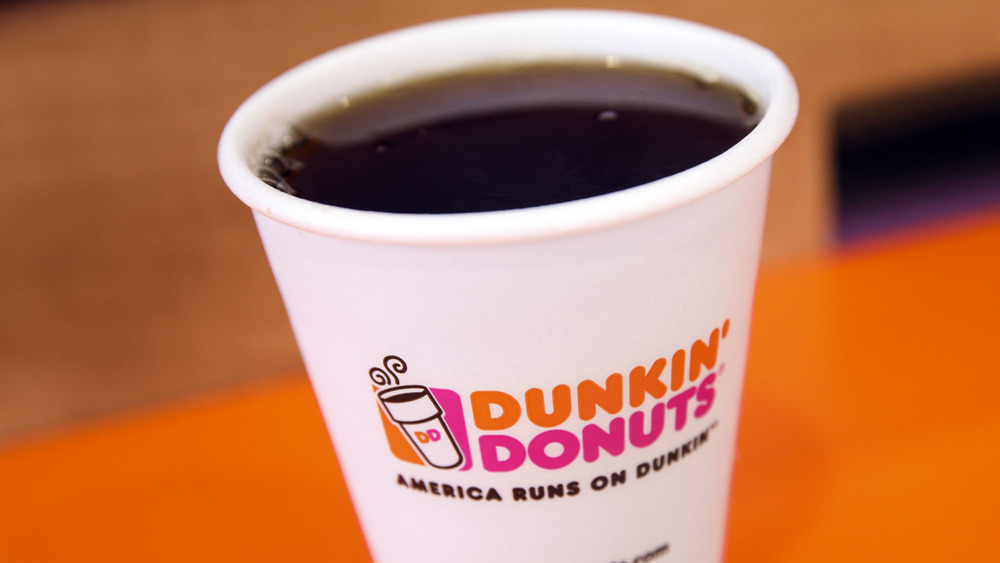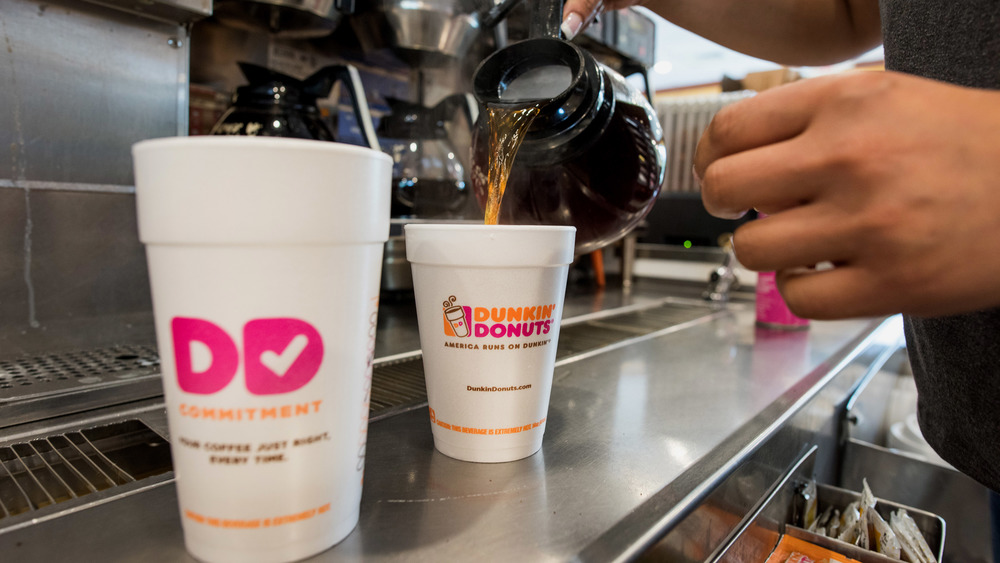Don't Buy Another Dunkin' Donuts Coffee Before Reading This
While America may not exactly run on Dunkin', Charli D'Amelio's fave coffee chain was still the nation's second-most popular one in 2019, right behind big-bucks Starbucks. According to Restaurant Business, was not only the number two coffee chain but ranks 8th overall for restaurants in general with over $900 million in sales. Even though Dunkin' is synonymous with donuts, that product is not their best-selling item.
Instead, most people waiting in the drive-thru are there to grab a cup of coffee (unless it's V-Day, in which case they might actually be getting married, which is bound to increase the wait times). According to the Dunkin' Newsroom, the company sells approximately 60 cups of coffee per second, which amounted to some 2 billion cups in 2017. (These stats are for worldwide sales, though, not just the U.S.)
"Considering how big they are," says Mathew Woodburn-Simmonds, founder of Home Coffee Expert, "Dunkin Donuts do a surprising number of things well." Nonetheless, he notes, there are still "areas that...are problematic, especially when compared to specialty coffee shops," and he spoke with Mashed to share a few of his concerns about Dunkin's brew.
Dunkin's coffee isn't of the highest quality
"To be fair to Dunkin," Woodburn-Simmonds tells Mashed, "they use 100 percent Rainforest Alliance and Fair Trade certified coffee beans, which is really important." That said, he reveals that their beans being labeled "premium" doesn't mean they're anything special. Premium, he says, is the designation the Specialty Coffee Association gives Grade 2 beans. At this level, there are "occasional defects and inconsistencies in the beans which will negatively affect flavor." While this might not be noticeable in a large cup of drip-brewed coffee, one bad bean can kill an espresso. "Volume can cover a multitude of inconsistencies," Woodburn-Simmonds explains. But he warns that "espresso will suffer. You will occasionally get [a Dunkin'] espresso shot that's just plain terrible."
In addition to so-so beans, Woodburn-Simmonds calls out Dunkin's mass production of coffee. As he sees it, "If you're looking to produce coffee that tastes exactly the same in lots of locations...you can't aim to produce the best coffee." He feels that good coffee requires not only top-notch trained baristas and equipment (two things too expensive to provide en masse), but should also be brewed in small batches. While he admits there's an upside to consistency because "it gives the consumer confidence that they'll get something that won't be offensive," he compares Dunkin' to McDonald's in that you wouldn't expect great burgers at the former, so you shouldn't expect great coffee at the latter. "Overall," he says of Dunkin', "it's just a temple to mediocrity."

